Reproduction and Life Cycle
Papilio glaucus
is
diecious, requiring sexual
reproduction. Males can be seen patrolling along streams
and trails looking for females. Females then lay their
eggs one at a time on leaves of plants such as cottonwood,
willow, birch and ash.
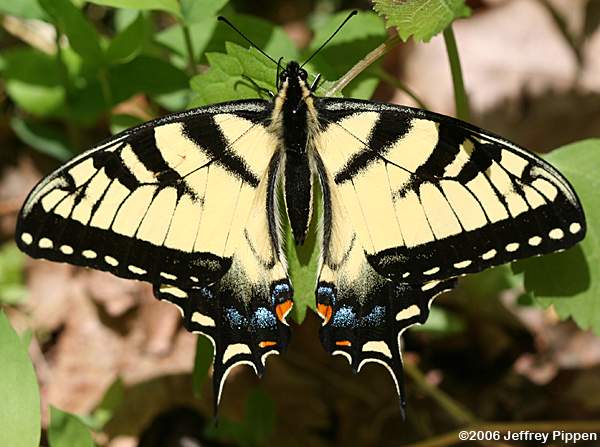
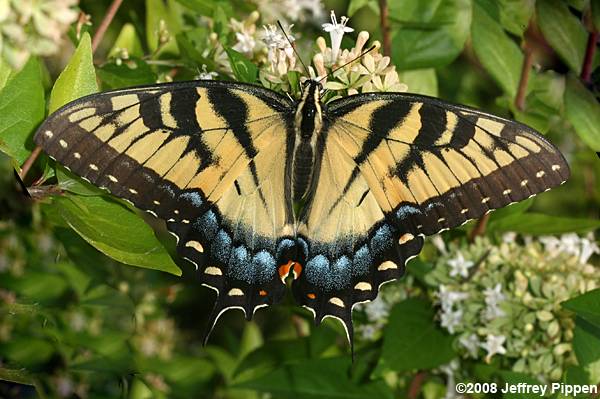
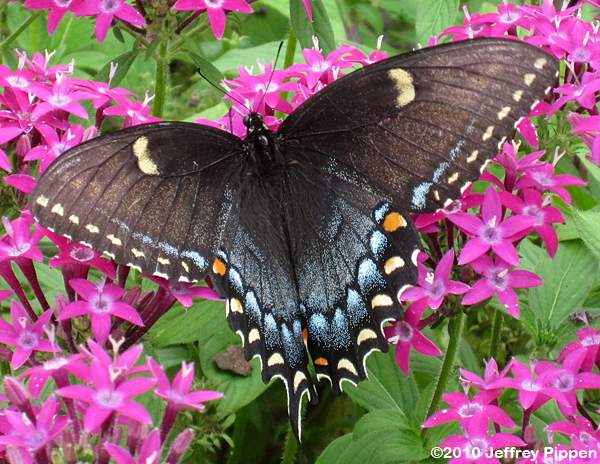
Papilio glaucus
male
Papilio glaucus female
Papilio glaucus black female
The eggs are large globs that are green
in color.
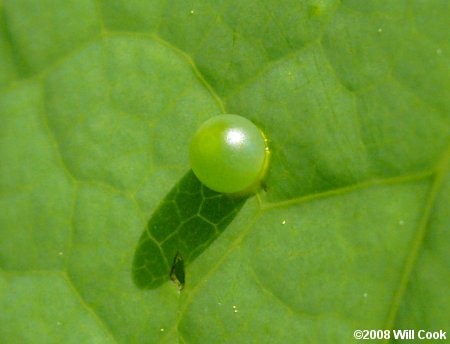
The caterpillar starts out brown and white,
looking like bird droppings, while mature caterpillars are green
with large. The caterpillar chrysalises
over winter, and the mature butterfly emerges in spring.
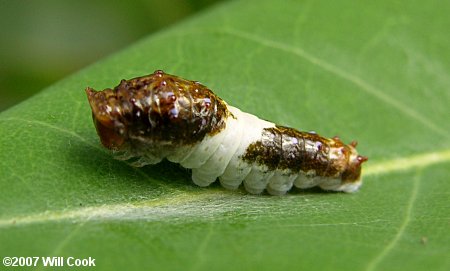
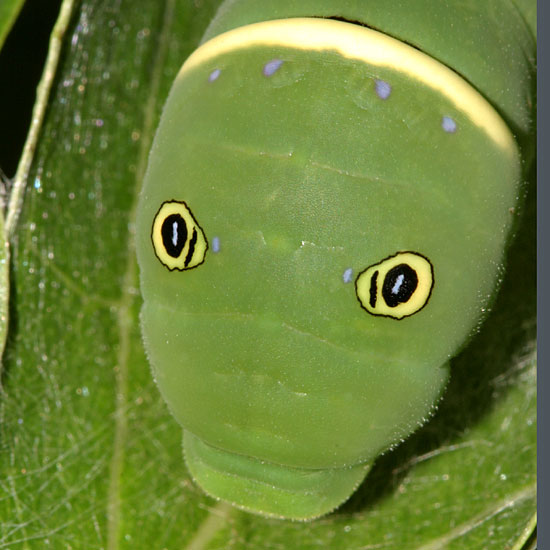
The caterpillar gains its protection against enemies with the
large fake eyespots on the thorax. It also has an
osmeterium, which can emit a foul odor to use against predators.
(Emmel, 1975)
Jump to:
Home
Classification
Habitat
Adaptation
Nutrition
Reproduction